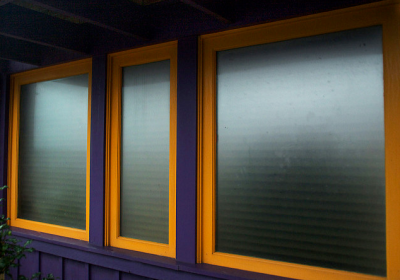What To Consider About A House Extension Before You Start

If you’re thinking that you might like to have an extension added to your home to give you more space, you’re not alone.
Many people choose this route rather than the alternative – moving house – because it means they can stay in a home they love, it’s less inconvenient, and it might even make them money over the long term.
Reconfiguring your current home by adding extra space downstairs, or another floor, or even utilizing little-used attic space and turning that into an entirely new room or suite, can certainly give you everything you want, and it will allow you to get the most out of the property you own.
No matter why you need more rooms or larger ones, if you have the money to put towards a good quality extension (and this is crucial – a poor quality one will cost you more over time and won’t look as good as it should do) then it’s certainly something to consider.
Here are some points to think about before you start.
Will It Add Value?
If you’re not planning on selling your home any time soon, or at all, then the overall value that an extension can add to the money your home is worth is not going to be at the forefront of your mind.
If, however, you are thinking of selling at some point, you’ll need to know whether the money you are going to pay out is something you can make a return on. In other words, is the amount you pay for the extension going to be added to the value of the house?
This can be difficult to tell, especially with a volatile housing market.
However, if you can find similar properties to your own for sale and compare the prices of those that have had extensions to the prices of those that haven’t, you can get a rough idea of what the difference is.
This is not an exact science, of course, but it might help you. If the amount you’re spending won’t be recouped if you were to sell, you might think about changing your plans, assuming the financial aspect is important.
Can I Design It Myself?
This is a good question, and the answer is, quite simply, yes and no.
This might be confusing, but in reality, you can certainly design your extension yourself. You can determine how big you want it (as long as you know what the rules are in your area because there will be restrictions regarding size), where it should go, what you want it to look like, and what should be included in it.
However, it’s always a good idea to seek advice from an architect or expert who can create home plans for you. It will be your initial design as far as possible but done in such a way as to align with all the building regulations and structural necessities to keep your extension safe and legal.
Finding an expert who you can work with to create a design for your extension that works for you as well as one that is completely in line with all the different regulations and codes is crucial.
It would be terrible if, after spending money and putting time and effort into the extension, you had to take it all down and start again.
This is why it’s always best to have an expert on hand to help you. Not only can you be sure that you’re doing the right thing, but your design will be taken to a new level, making it even better than you might have initially thought.
Is It Energy-Efficient?
When you’re adding an entirely new area to your home, you can make sure that it is as energy-efficient as possible. In fact, this is something you should insist on. The more energy-efficient your home is, the more money you can save on your energy bills, and over time this can add up to a large amount.
Add to this the fact that a more energy-efficient home is better for the environment, and therefore you can do something to help the planet, and the reasons for ensuring your design is energy efficient stack up.
There will be certain building regulations that mean you have to have specific energy rated materials in your extension, but can you do more than this?
Could you, for example, install solar panels (assuming there is an outside roof) to allow for more energy efficiency? This is certainly something that will need to be factored in at the design stage, so finding out more about the different things you can do and how they can be incorporated into your design is important.
What Will The Neighbors Think?
While most of the time what your neighbors think about renovations you make in your home is not something you need to consider (or should consider; after all, the changes are yours to make and it’s your property), when it comes to an extension, things are a little different.
You will need to consider what your neighbors will think if your extension is going to affect them in any way.
For example, building an extra story on your home is going to mean their backyard is overlooked, or perhaps that you would be able to see directly into a window that affects their privacy, they may not wish that to happen.
Other problems can include an extension shading part of a yard that used to get sunshine, or causing problems when it comes to parking.
It’s a good idea to speak with your neighbors before you commit to any building work. Show them your designs and talk through your ideas to ensure they can’t see any problems with them.
If they can, it’s good to know right from the start, and it might be that between you, along with your architect and perhaps your building contractors, you can work out a solution.
Although this might mean it takes longer to get started, it will prevent problems further down the line and could save you time (not to mention frustration).






